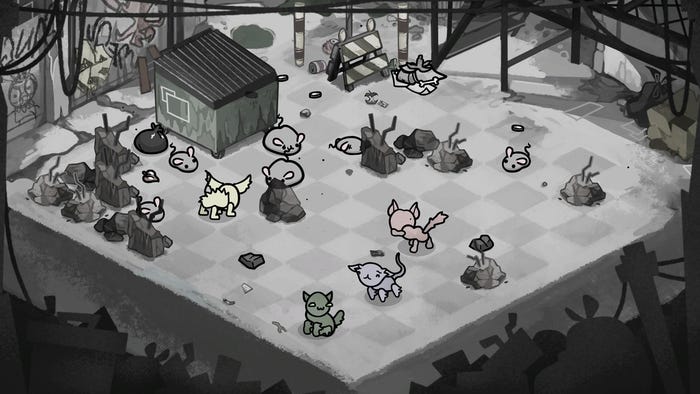Ubisoft digital VP on retail, mobile, and the publisher's role
Where does a mega-publisher fit into the present-day digital market? Gamasutra spoke with Ubisoft digital publishing VP Chris Early about the publisher's new role, and their attitude towards retail.

E3 is a celebration of everything blockbusting and big in video games -- but everyone knows that the industry isn't just about big these days. In an era of self-publishing and small dev teams, where does a giant publisher like Ubisoft fit in? Gamasutra spoke to Ubisoft's Chris Early, VP of digital publishing, about their positioning and plans for digital product development, publishing services, and their perspective on retail.
On Ubisoft's patient approach to digital products:
Ubisoft has been a creative company and that's what we're best known for. That philosophy stems from us wanting to develop the talents of our teams, and that's what's happening in the digital space as well. We haven't made any big acquisitions; we've made a few strategic acquisitions, but it's mostly about how we're developing that talent into our teams. The reality is, if we were to immediately layer on another team and say, 'Work with Assassin's Creed', or something like that -- they wouldn't get the lore, necessarily, the designer hasn't grown up thinking about it, and it would affect the overall quality of the game. We're doing it the patient way. From an overall perspective, in Ubisoft, you are starting to see more mobile games show up as companion games -- Watch Dogs, The Division, Black Flag all have "mobile products" that are tied to your experience, that extend your experience of the IP.
On the publisher's evolving role in the industry:
If you want to rewind ten years, everyone looked for money and production management. But it doesn't have to be like that now, because there are much smaller dev budgets on some projects. So what services do we provide that is hard for a small team to do? Multiplatform releases is one thing, right, we're simultaneously able to launch across multiple platforms, and some of them a small team won't have access to. You can get on the mobile platforms pretty easy, but even though you can launch on Apple, you might be better off launching with our access to Apple, where you can get featured. Marketing is one of those things that a publisher can always help with, because you can do it by yourself but you can't do it with the scale or efficiency that you can with a publisher. With games that operate as services, we have teams that can do that -- on a small team you might not have a dedicated analyst guy, community activation, people to run events. Even when you think of crowdfunding, Kickstarter, that tends to work well -- Cloudberry Kingdom, a game we're launching in a month or so, that started as a Kickstarter game and they developed most of the game with Kickstarter funds, so they showed us an almost-finished game, and as a result they got better business terms, because we had less risk. They're like, 'Here's a great game,' and we're like, 'Yes, that's a great game.' Now, they wanted us to help it go out on one platform, and we're getting it on five, so they're super happy, and we're getting it released around the world because we have localization teams to get it out there, and it's worked out really well.
On the advantage of in-house tools dev:
We haven't seen the inflection point yet, where it won't be worth our time or money to do our tools development in-house. What it really does is, it gives us a competitive advantage with our products. You see Assassin's Creed, none of it has that off-the-shelf stuff. In AC3, the game knows whether you can climb any given surface or not. That gives the player a freedom of motion in the game that feels more realistic; if you walk up to a rock wall and you see a crack, you can use the crack to climb it, it makes sense. I think that's the kind of thing that makes it make sense for us to develop our own engines. And since the companion games you see work in scaled-down versions of our full engines, we can take maps from the high-def games, run it through a brief pipeline, and it's there on the tablet. It might be a while before we give up on our own engines.
On the changing role of retail:
Retail is important to us, and the industry, and will continue to be. I'm not one of the digital guys that says retail is going away. We're working with retailers to find a way for them to participate in the digital market. How do you, when you go to retail to buy Assassin's Creed, also buy the season pass? We're doing a lot of support for retail, and I don't see that changing. I think retail and digital end up being mixed. When you look at gamers, some things they do are only digital, and some are retail. Why would a guy download a PSN game and not download Far Cry 3? I don't know! They have the capability, clearly, because some of our PSN games are rather large games. I don't completely understand what motivates some people to buy online and others to buy in a store, but I think our job at Ubisoft is to make sure that we provide the ability for you, the consumer, to get the content in the way you want to.
Read more about:
event e3About the Author(s)
You May Also Like









.png?width=300&auto=webp&quality=80&disable=upscale)



